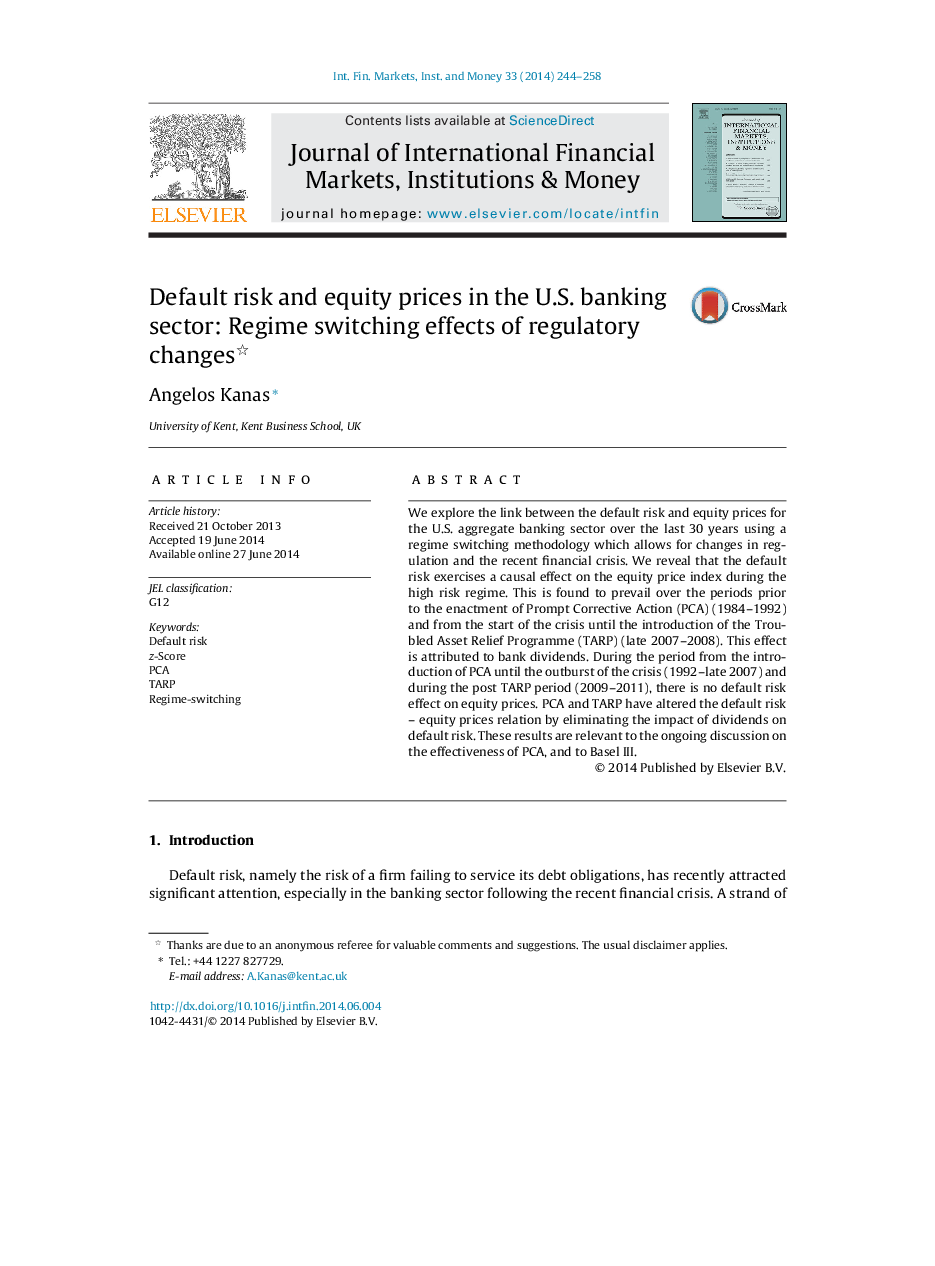| Article ID | Journal | Published Year | Pages | File Type |
|---|---|---|---|---|
| 963872 | Journal of International Financial Markets, Institutions and Money | 2014 | 15 Pages |
•We examine the effect of default risk on equity prices.•The role of dividends is assessed.•There is regime-dependence in the default risk effect.•This effect is driven by dividends.•PCA and TARP influence the relation.
We explore the link between the default risk and equity prices for the U.S. aggregate banking sector over the last 30 years using a regime switching methodology which allows for changes in regulation and the recent financial crisis. We reveal that the default risk exercises a causal effect on the equity price index during the high risk regime. This is found to prevail over the periods prior to the enactment of Prompt Corrective Action (PCA) (1984–1992) and from the start of the crisis until the introduction of the Troubled Asset Relief Programme (TARP) (late 2007–2008). This effect is attributed to bank dividends. During the period from the introduction of PCA until the outburst of the crisis (1992–late 2007) and during the post TARP period (2009–2011), there is no default risk effect on equity prices. PCA and TARP have altered the default risk – equity prices relation by eliminating the impact of dividends on default risk. These results are relevant to the ongoing discussion on the effectiveness of PCA, and to Basel III.
